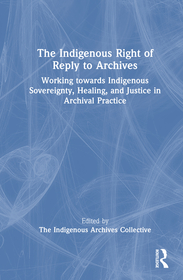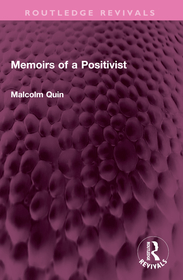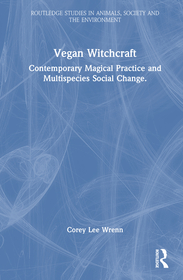
The Indigenous Right of Reply to Archives
Working towards Indigenous Sovereignty, Healing, and Justice in Archival Practice
- Publisher's listprice GBP 145.00
-
69 273 Ft (65 975 Ft + 5% VAT)
The price is estimated because at the time of ordering we do not know what conversion rates will apply to HUF / product currency when the book arrives. In case HUF is weaker, the price increases slightly, in case HUF is stronger, the price goes lower slightly.
- Discount 10% (cc. 6 927 Ft off)
- Discounted price 62 346 Ft (59 378 Ft + 5% VAT)
Subcribe now and take benefit of a favourable price.
Subscribe
69 273 Ft

Availability
Estimated delivery time: In stock at the publisher, but not at Prospero's office. Delivery time approx. 3-5 weeks.
Not in stock at Prospero.
Why don't you give exact delivery time?
Delivery time is estimated on our previous experiences. We give estimations only, because we order from outside Hungary, and the delivery time mainly depends on how quickly the publisher supplies the book. Faster or slower deliveries both happen, but we do our best to supply as quickly as possible.
Product details:
- Edition number 1
- Publisher Routledge
- Date of Publication 30 September 2025
- ISBN 9781032771007
- Binding Hardback
- No. of pages192 pages
- Size 234x156 mm
- Weight 520 g
- Language English
- Illustrations 3 Illustrations, black & white; 1 Halftones, black & white; 2 Line drawings, black & white; 2 Tables, black & white 700
Categories
Short description:
This volume offers a blueprint for decolonising archives and centring Indigenous agency, illuminating the innovative strategies being implemented across institutional and community settings. It is essential reading for archivists, curators, scholars, and anyone committed to transforming GLAM practice.
MoreLong description:
This book brings together leading Indigenous and allied thinkers, practitioners, and advocates to address the critical issue of the Right of Reply in archives — foregrounding truth-telling, cultural safety, and Indigenous sovereignty across GLAM institutions.
Collecting institutions have shaped and maintained records produced by colonial systems of administration and continue to play a role in perpetuating colonial paradigms that are inherently resistant to the needs and priorities of Indigenous peoples. Against this backdrop, this book embarks on a scholarly investigation into the concept known as the 'Right of Reply.' This concept speaks to Indigenous peoples' right to update, correct, critique, or enhance Indigenous knowledge that is held in collecting institutions. Spanning creative responses, case studies, policy critiques, and international perspectives, the volume explores how the Right of Reply operates as a political and ethical imperative in the work of archives. Contributors examine Indigenous-led protocols, the impact of colonial recordkeeping, digital repatriation, metadata annotation, and structural transformation in Australia, Aotearoa, and the United States.
The volume offers a blueprint for decolonising archives and centring Indigenous agency, illuminating the innovative strategies being implemented across institutional and community settings. It is essential reading for archivists, curators, scholars, and anyone committed to transforming GLAM practice.
When Indigenous and allied voices collaborate to reclaim narratives from institutional archives, healing begins. This transformative work invites new responses to historical records — shifting power, affirming sovereignty, and creating pathways towards justice. An essential guide for anyone committed to meaningful reconciliation through collaborative stewardship.
Laura McBride, Wailwan, Director, First Nations, Australian Museum
This book is a how-to guide on putting decolonial principles into practice. It is essential reading for anyone interested in activating archival traces to envision and enact more just societies.
Michelle Caswell, Professor, Department of Information Studies, UCLA
Table of Contents:
Introduction 1 Right of Reply and the Indigenous Archives Collective: Building a Network to Support Dialogue in Indigenous Archives. Introduction 2 Introducing the Indigenous Archives Collective Position Statement on the Right of Reply to Indigenous Knowledges and Information Held in Archives. Creative Response – Right to Know 1. International Indigenous Archival Activism: Reflections on the Right to Know, Right of Reply and Right to Govern from Native North America 2. The Right to Know: Collecting Institutions and the Imperative for Proactive and Responsible Disclosures 3. Digital Preservation of Aboriginal Secret/Sacred Film and Audio Proppa Way 4. What Our Archives Don’t Say. Creative Response – Consent 5. Toward a Context for a Right of Reply at the National Library of Australia 6. Collections as Conversation: Right of Reply at UQ Library 7. Indigenous Knowledges in Powerhouse Custodianship: Building Trust, Building Collections 8. Right of Reply: A Matter of Responsibility and Progress. Creative Response – Cultural Safety 9. Mana Tangata: The Right of Reply and Cultural Safety in Aotearoa New Zealand 10. The Archives as Places of Sorry Business: Enacting the Right of Reply to Support Truth-Telling, Healing and Indigenous Wellbeing and Sovereignty Conclusion
More






